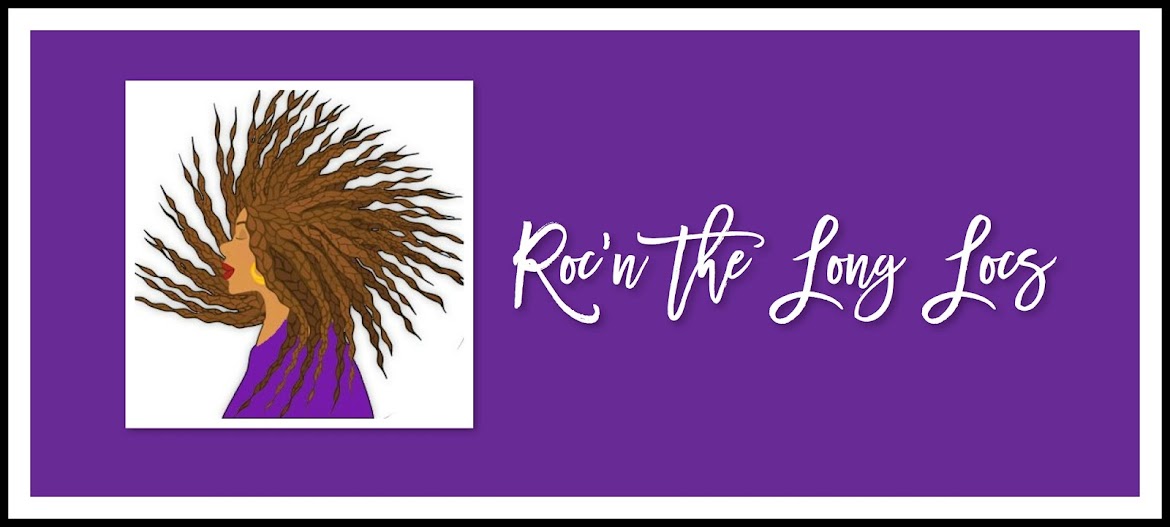Article from On the Path
Written by: Moyosafi Ajabu
One of the things my clients like most about their retightening sessions with me is the aromatic spray I use on their hair when I’m done. They love it! Sometime the scent is calming, sometimes it’s invigorating and sometimes it just plain smells good.
Each and every formula is custom blended by me using essential oils and my clients are always trying to get me to tell them how I’ve made it.
I’ve been reluctant to tell for two reasons. The first is because it is a special treat they can look forward to from me, and the second, essential oils should not be used without at least a basic knowledge. They can be harmful if they're not understood and respected. I promised my clients that one day I would share some of my knowledge about essential oils (but not my custom recipes) and today is the day. Let’s start with some basic information about essential oils.
Written by: Moyosafi Ajabu
One of the things my clients like most about their retightening sessions with me is the aromatic spray I use on their hair when I’m done. They love it! Sometime the scent is calming, sometimes it’s invigorating and sometimes it just plain smells good.
Each and every formula is custom blended by me using essential oils and my clients are always trying to get me to tell them how I’ve made it.
I’ve been reluctant to tell for two reasons. The first is because it is a special treat they can look forward to from me, and the second, essential oils should not be used without at least a basic knowledge. They can be harmful if they're not understood and respected. I promised my clients that one day I would share some of my knowledge about essential oils (but not my custom recipes) and today is the day. Let’s start with some basic information about essential oils.
What Are Essential Oils?
Essential oils are the subtle, cola tile liquids that are distilled from plants, shrubs, flowers, trees, bushes and seeds through an ancient and delicate process. Science is re-discovering the incredible healing power of essential oils and beginning to acknowledge their value. Essential oils are known to be immune-stimulating, anti-viral, anti-fungal, anti-septic, anti-microbial, anti-fungal and anti-parasitic. Many essential oils contain healing qualities and can be used to aid healing of cuts, wounds, burns, bacterial and fungal infections through topical application or inhalation.
Essential oils also have unique psychological influences as well as medicinal properties; they make us feel better. Pure essential oils act upon the olfactory senses sending direct messages to the brain. Different aromas have the ability to produce changes in our emotions by triggering memories and the release of endorphins in the brain. (Endorphins are hormone-like chemicals that can produce gratifying sensations, euphoria and a sense of well being.)
Essential oils are also very powerful. Almost all essential oils should be diluted before use either in a "carrier oil" like Grape seed, Sweet Almond, Wheat germ, Apricot, Avocado, Olive, Jojoba or distilled water. Some are very irritating to the skin if used full strength and you should never use essential oils internally without direction from your holistic doctor.
When shopping for essential oils choose quality oils and ensure that your purchase is labeled pure essential oil. If the oil is labeled fragrance, aromatic oil, scented oil, or perfume you are probably buying a synthetic blend. Synthetic fragrances do not have the same aromatherapy properties as essential oils and may contain harmful chemicals. Synthetic oils are also not suitable for medicinal or aromatherapy uses.
Be informed about the benefits and potential harmful effects of essential oils before using them. Some essential oils can increase the skin's sensitivity to sunlight and some can cause irritation on contact. Keep them away from your eyes, genitals, and mucous membranes. Trust me, you wouldn’t want to get a single, solitary drop of pure peppermint essential oil anywhere near the aforementioned places. Be diligent about washing your hands before and after handling pure essential oils. This will ensure that they won’t end up somewhere you don’t want.
Keep them out of the reach of children. Where children are concerned, essential oils should be viewed the same as any other drug. During pregnancy, take extra precautions or avoid essential oils completely unless otherwise instructed by a reputable source. Do not us them internally unless under the supervision of a trained professional.





No comments:
Post a Comment